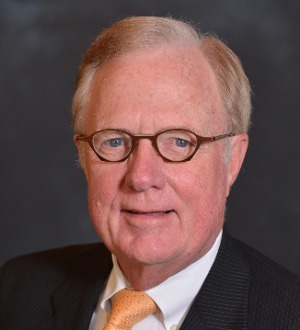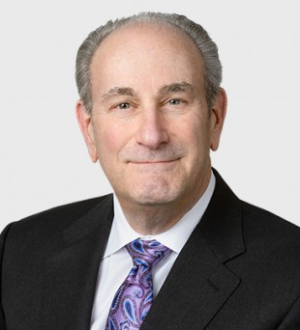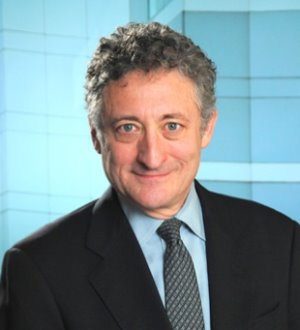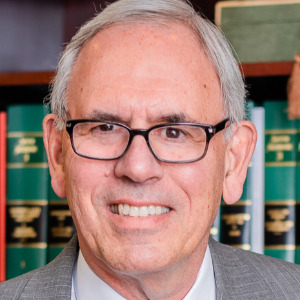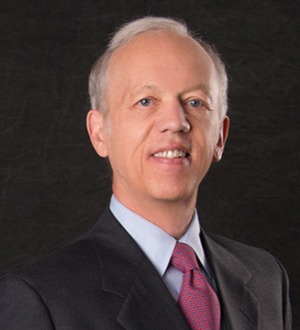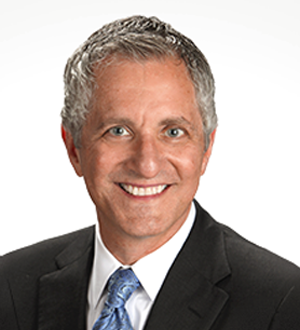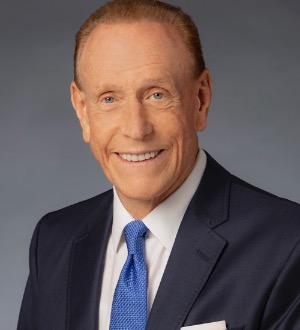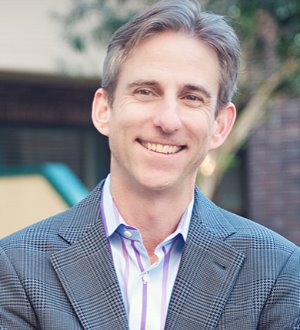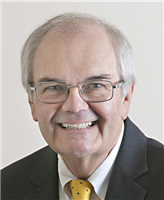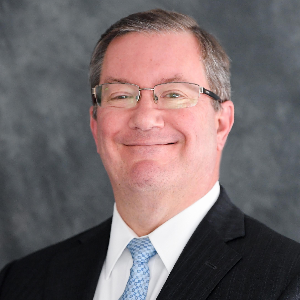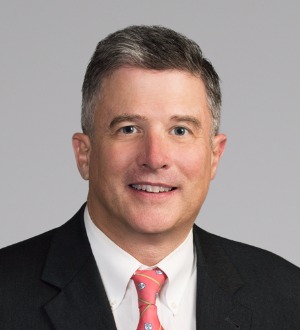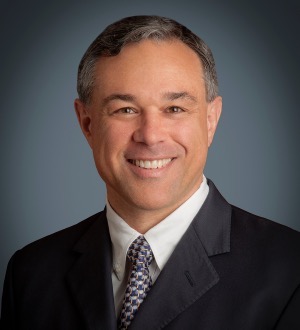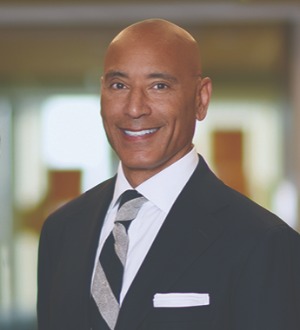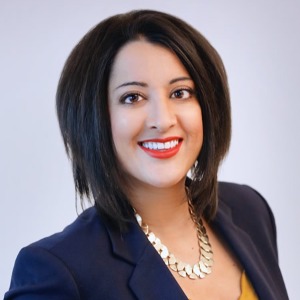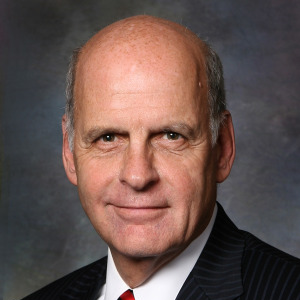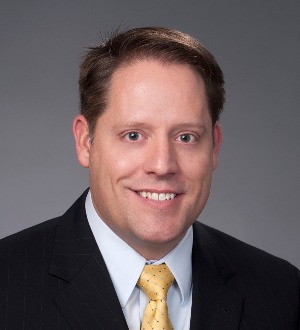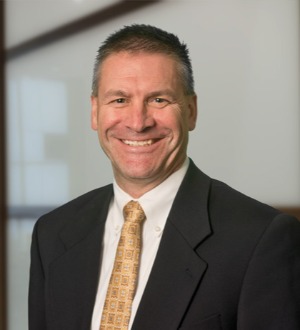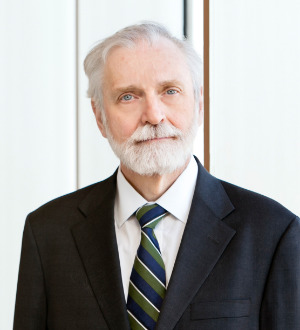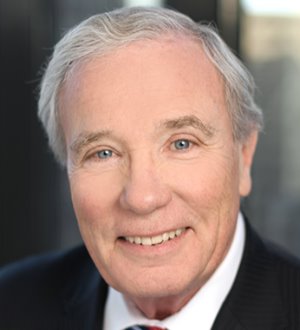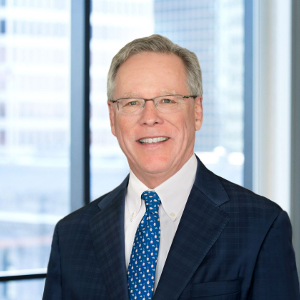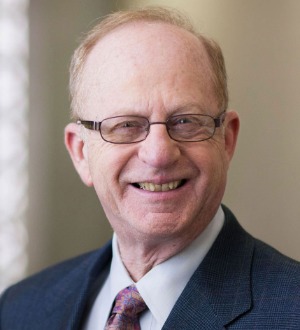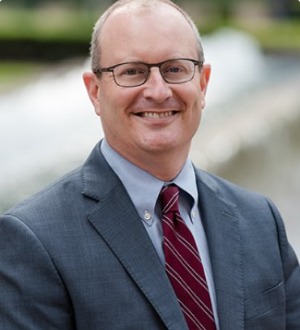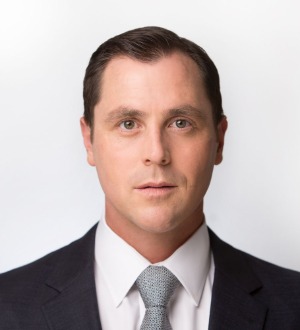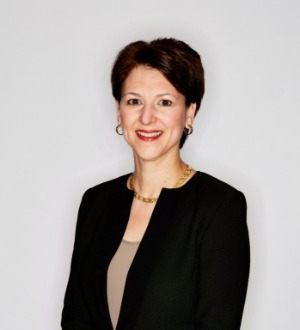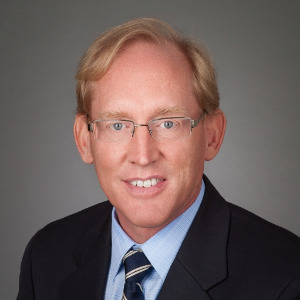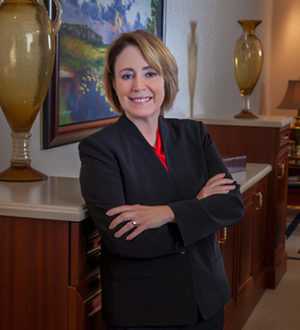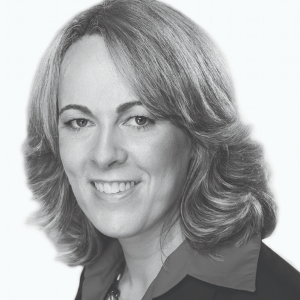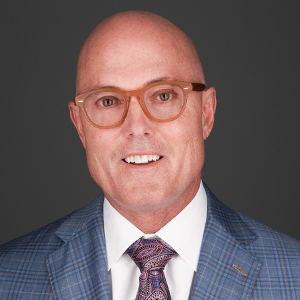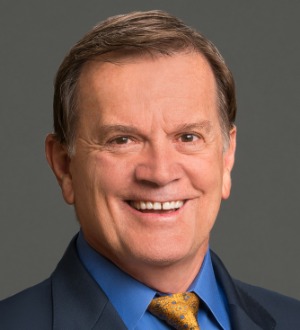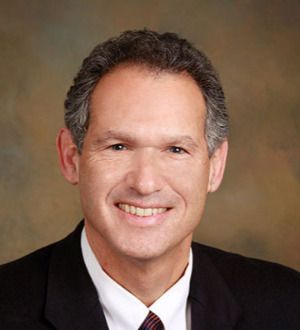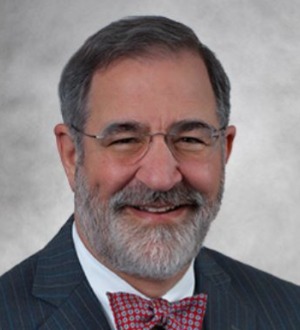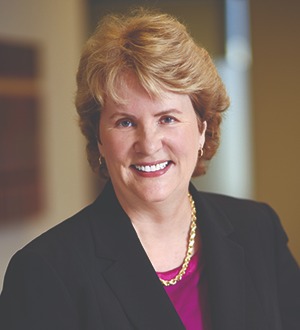- Find a Lawyer
- /
- United States
- /
- Legal Malpractice Law - Plaintiffs
Best Lawyers in America for Legal Malpractice Law - Plaintiffs
Practice Area Overview
While former clients are the most common plaintiffs, lawyers, and law firms also can be sued by individuals or entities that they never represented. Former clients typically bring claims for legal malpractice (also known as professional negligence), alleging that a lawyer or law firm failed to properly handle a business transaction, lawsuit, or some other matter. Depending on the circumstances, the former client also may assert claims for breach of contract or breach of fiduciary duty. Persons who were never clients of a lawyer may be able to bring a professional negligence or breach of fiduciary duty claim against the lawyer if they can show that they were expected to receive the benefit of a lawyer’s services or were otherwise owed a duty by a lawyer. Lawyers also can be sued for allegedly aiding and abetting torts committed by their clients, such as fraud, breach of fiduciary duty, or malicious prosecution.
Lawyers who sue or defend lawyers and law firms need to have the experience and judgment to assess the strengths and weaknesses of these claims and efficiently manage their litigation. Because legal malpractice plaintiffs are obligated to prove that a lawyer’s conduct fell below the standard of care, which is often the subject of expert testimony, lawyers prosecuting and defending legal malpractice claims must understand the applicable law and make effective use of expert testimony. They must also understand, and critically analyze, the plaintiff’s burden of proving that the lawyer’s or firm’s conduct resulted in actual harm, which in many jurisdictions requires a plaintiff to prove “the case within a case.” Some available defenses are unique to legal malpractice cases. Lawyers handling legal malpractice and breach of fiduciary duty claims should also have a firm grounding in the ethical rules governing lawyers’ conduct, since such claims often arise from alleged violations of those rules and their assertion may implicate a lawyer’s ethical obligations.
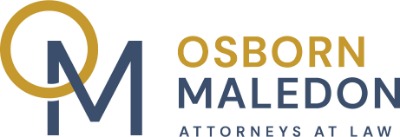
Select a location from the list below to find the best legal talent for your needs.
State


David Ackerman defends law firms in professional malpractice and legal ethics actions. A Fellow of the American College of Trial Lawyers, clients value his litigation experience and strategic insight in resolving disputes through trial and appeals, negotiation, or arbitration. Ranked by Chambers USA , where he is described as “an even-keeled, thoughtful and smart attorney,” he is repeatedly recognized by Florida Trend’s Legal Elite and included in The Best Lawyers in America...
John Allen focuses his practice on business and commercial litigation. He is a Board Certified Civil Trial Advocate, by the National Board of Trial Advocacy. With over 30 years experience handling legal problems, John has written and co-written dozens of articles and books, and speaks frequently to business and law groups. On a regular basis, he teaches courses in law and trial practice to other lawyers, and often serves as an expert witness. He is a certified arbitrator and mediator.
PRACTICE AREAS Trials Commercial Litigation Bet-the-Company Trials Class Actions White Collar Criminal Defense EXPERIENCE Kay is a seasoned trial attorney, having tried over 100 jury trials to verdict. She represents both plaintiffs and defendants in a broad range of high-stakes commercial litigation and white collar cases. Chambers USA ranks her among the top commercial litigators in California, quoting sources who describe Kay as “having great instincts and clients listen breathlessly...
David P. Atkins is a member of Pullman & Comley’s Litigation Department and leads its Professional Liability Section. He practices in the areas of professional liability, commercial litigation, appeals and administrative proceedings. Attorneys, law firms, CPAs and health care professionals seek David to represent them in malpractice, licensing, court sanctions and disqualification proceedings, ethics and disciplinary (grievance) matters. His extensive experience includes handling di...
Founding partner Keith M. Babcock grew up in Haddonfield, New Jersey, and has practiced law in South Carolina for almost 40 years. Now "of counsel" to Lewis Babcock, his practice has consisted almost exclusively of litigation, with a concentration on business disputes, eminent domain, and professional negligence. He has an outstanding reputation for representing real property owners in eminent domain actions, as well as other disputes. He is an emeritus member of Owners' Counsel of America , ...
Donald H. Bacon is a member of Friday, Eldredge & Clark’s Management Committee and a partner in both the Litigation Practice Group and Medical Malpractice Practice Group. While he has represented a diverse set of clients in a variety of litigation, most recently, his focus has been in the area of professional liability representing lawyers, doctors, accountants and insurance agents. In addition to representing them in court, he has represented lawyers before the Office of Profession...
Rick Bass practices in the area of complex commercial and product liability litigation. He has substantial experience in the representation of financial institutions and the litigation and settlement of class actions, mass tort and other complex matters. Mr. Bass is a frequent lecturer on litigation issues, and for several years has served as Adjunct Professor of Trial Advocacy at Mississippi College School of Law. He also served on the faculty for the NITA Gulf Coast Deposition Program.
Mr. Baum is a Founding Member and President of Baum O’Connor Cullen Chmiel. For more than 40 years, Mr. Baum has focused his practice on the representation of physicians, nursing homes, and other healthcare providers, particularly in the defense of medical malpractice lawsuits, and in related contract and employment litigation. Mr. Baum has extensive trial experience, having tried over 100 cases in his career. Mr. Baum also represents healthcare professionals in administrative matters i...
A. Bernard “Bernie” Bays is a Director of the firm. Mr. Bays has over 50 years of experience successfully representing clients in over 150 landmark Hawaii litigation cases. Mr. Bays focuses his practice in the areas of complex commercial litigation, business litigation, real estate litigation, trusts and estates litigation, legal malpractice law-defendant litigation, real estate law and land use and zoning law. Mr. Bays is Board Certified in Civil Trial Law by the National Board o...
Keith has substantial experience litigating complex commercial matters in a variety of contexts, including business torts, injunctive proceedings, legal malpractice defense, and claims against directors and officers. He has served as lead counsel in the defense of class actions. Additionally, Keith represents broker-dealers and investment professionals in the litigation, arbitration, and regulatory arenas. He has been involved in evidentiary injunctive matters on a broad range of issues, incl...
David J. Beck is consistently recognized as one of our country’s best trial lawyers. This recognition has grown from the consistent results he has achieved for his clients in his more than forty years of practice. From the smallest disputes to the billion dollar cases, David understands the importance of each case to his client, and he approaches each with the same intensity and integrity that has served him - and his clients - so well for so long. For David Beck, every case is a story ...
Paul Berg splits his time between managing the firm and his litigation practice. Paul’s practice focuses on complex business and commercial litigation, along with personal injury and wrongful death actions. Paul co-authored the 2020 edition of Oregon Civil Pleading and Litigation , as well as the 2009 supplement to the “Case Investigation” chapter of the Oregon Civil Litigation Manual .
In 1978, Jim became a founding partner of what was then Hunt Thompson & Bowie. His current practice with Thompson Bowie & Hatch LLC focuses on commercial litigation, insurance counseling services and professional liability. His exceptional reputation in the legal community is built, in part, on his successful involvement in cases which have helped shape Maine law. Not only is he a veteran of countless jury trials in both state and federal court, as well as non-jury trials, arbitration...
Mr. Brown heads the firm’s Commercial Litigation Section as well as its Professional Liability Practice Group. He is a member of the firm’s Board of Directors and serves as the firm’s Loss Prevention Partner. His practice focuses on complex litigation, including banking and contract disputes, professional liability litigation, legal malpractice defense, antitrust litigation, trusts and estates litigation, First Amendment litigation, and Education law. For over two decades, Mr. Brown has succe...
Trevor A. Brown represents clients in both litigation and transactions. His real estate experience ranges from resort acquisition and development to acting as trial counsel to establish beach access rights based on Kingdom of Hawaii land use. Mr. Brown's corporate experience ranges from negotiating corporate restructurings to acting as trial counsel to force the break-up of related land development corporations. Mr. Brown counsels trustees and beneficiaries in trust matters and also represent...
PRACTICE AREAS Commercial Litigation White Collar Criminal Defense Appellate Litigation EXPERIENCE Reuben Cahn is a courtroom advocate of rare experience and ability. A Fellow of the American College of Trial Lawyers, he has tried over 100 cases to jury verdict and has argued twice before the Supreme Court (in 2011 and 2018) in addition to numerous arguments before both the 9th and 11th Circuits. This combination of skill and experience at the highest levels establish Mr. Cahn as one of the m...
Steve is the founding partner and chair of the Personal Injury and Criminal Defense practices at O’Connell and Aronowitz. Under his leadership, our firm has become one of the most active personal injury and criminal defense law firms in upstate New York. Few lawyers in the area have excelled in both the personal injury and criminal defense fields. With over thirty five years of experience at the state and federal levels, Steve is considered one of the most successful trial lawyers in th...
Steve Collins is a partner practicing in the firm’s Litigation & Trial Practice and Securities Litigation Groups. His practice focuses on (1) securities litigation, investigations and enforcement proceedings; (2) financial services litigation; and (3) transaction-based litigation, as the principal components of a commercial litigation practice. Securities Litigation and Investigations: Mr. Collins represents clients in SEC, stock exchange and state securities investigations and enfo...
Terrence M. Connors has been recognized by his peers as one of the pre-eminent trial attorneys in the state. For the past seven years, he has been ranked as the number one lawyer in all upstate New York by Super Lawyers magazine. This year, the Erie County Bar Association named him Lawyer of the Year and, in 2006, the New York State Bar Association awarded him the prestigious Attorney Professionalism Award. He is a fellow of the American College of Trial Lawyers. Membership in that organizati...
Michael J. Corso is chair for the Tort and Insurance Litigation practice area. His current civil trial practice area is heavily involved in the defense of non-medical professionals, including lawyers, accountants, architects, engineers and surveyors, copyright/trademark infringement, product liability and also more general tort defense matters in litigation. Mike frequently writes and speaks on issues regarding the defense of non-medical professionals and law office risk management issues to ...
Rick has over 40 years of experience litigating complex commercial cases of all types in state and federal court, as well as in arbitration. He has represented a host of clients in bet-the-company litigation involving common law and statutory business torts, contract disputes, state and federal securities law violations, shareholder derivative claims, class actions, director and officer liability, lender liability, partnership issues, real estate issues, employment matters, RICO, and independ...
Mike Crooks is a Shareholder in the firm’s Litigation and Risk Management Practice Group. He focuses his practice on commercial litigation, legal malpractice and other professional negligence claims, accounting malpractice, insurance defense and coverage issues, bad faith litigation, product liability work, premises liability, breach of contract, personal injury defense and third-party recovery. Mike is also an experienced mediator and is frequently called upon to resolve disputes. Mike...
Allen David's civil litigation trial practice focuses on the defense of professional liability claims. He primarily represents lawyers and law firms against complex claims of malpractice. In addition to his trial experience, Mr. David has significant appellate experience in both state and federal courts. His articles and book chapters in the areas of legal malpractice, insurance law and financial institution law have appeared in numerous publications. Mr. David is the author of the profession...
Beverly DeLaune handles professional liability matters for accountants, lawyers, insurance agents and brokers. Beverly assists her clients in responding to disciplinary complaints and professional liability lawsuits, as well as providing assistance addressing pre-litigation concerns. Beverly DeLaune handles professional liability matters for accountants, lawyers, insurance agents and brokers. Beverly assists her clients in responding to disciplinary complaints and professional liability lawsu...
Mr. Delo practices primarily in the areas of medical malpractice defense, healthcare law, personal injury, and commercial litigation. He focuses his practice on the defense of physicians in medical malpractice cases on behalf of the largest medical liability insurer in Arizona and other carriers. Mr. Delo has significant experience in litigating healthcare coverage issues and has represented health maintenance organizations (HMOs) in numerous matters. He also represents physicians in discipli...
John has extensive experience in complex commercial litigation, including handling numerous trials, hearings and other matters before state and federal courts in the areas of contracts, business torts, trade secrets, real estate, securities, intellectual property, partnership and products. He has represented large multi-national clients, as well as regional and local businesses and individuals in a variety of business disputes. In light of this diverse experience in litigating business issues...
H. Robert Fiebach joined Cozen O’Connor in February 1995. He is a member of the firm and resident in the Philadelphia office. In addition to his trial experience, Robert is an accomplished appellate advocate. He has successfully handled many appeals within his practice areas in the Pennsylvania Superior and Supreme Courts and the U.S. Court of Appeals for the Third Circuit. Robert has also successfully handled appeals in the Federal Courts of Appeal for the Second and Fourth Circuits. H...
Jesse Gessin is trial counsel for businesses and individuals. He is the rare attorney who successfully tries both civil and criminal cases. For example, his multimillion-dollar jury verdict was recognized as the highest California verdict in several categories for that year. He entered the case only a few months before trial. In 2022, hired less than ten days before trial, Jesse achieved a complete defense verdict for a successor trustee against multimillion-dollar claims of wrongful investme...
Lisa’s litigation practice spans a broad range of complex environmental, energy, land use, real estate, insurance, and business matters. On behalf of private and public sector clients, she practices in state and federal courts at both the trial and appellate levels. In addition, she handles contested administrative proceedings, alternative dispute resolution matters, and sensitive regulatory compliance negotiations. She co-chairs the firm’s Environmental and Energy Law and Real Es...
Jonathan Hafen has extensive experience representing clients in federal and state courts. He has been widely praised by clients and peers for his skilled and efficient approach to litigation. As a trial lawyer, Mr. Hafen handles a wide variety of litigation, including cases in the areas of securities law, employment law, breach of contract, land disputes, road disputes, intellectual property, disputes over ownership and control of businesses, class actions, and construction law. Mr. Hafen&rsq...
In business and legal malpractice litigation, Betsy’s clients include small and large businesses, as well as individuals seeking to protect their business and personal interests. She represents clients before state and federal trial courts, in arbitration, and on related appeals. Betsy’s trial practice focuses on high-stakes business and legal malpractice litigation in disputes involving claims of breach of fiduciary duties, fraud, negligence, breach of contract, dissolution and r...
Nicole Hyland is a partner in the Litigation Group and Professional Responsibility Group at Frankfurt Kurnit, as well as Deputy General Counsel for the firm. Her practice focuses primarily on legal ethics, professional responsibility, and legal malpractice. She is recognized by Best Lawyers in America in the 2024-2025 editions for Legal Malpractice Law – Defendants and has been named a "Super Lawyer" by Super Lawyers magazine for ten consecutive years. Ms. Hyland counsels attorneys and ...
Lance C. Ivey is recognized as a top civil litigation attorney in the area of products liability. His practice includes cases involving automotive design and manufacturing defects including insufficient roof strength, handling and stability defects, defective airbags and defective seat belts. Lance has handled defective product cases all over the country and has obtained numerous multi-million dollar verdicts and settlements for firm clients in cases against virtually every international auto...
Terry Johnson is a Shareholder and Chair of the firm’s Professional Liability Section. Terry has tried hundreds of cases to a verdict in matters ranging from complex legal malpractice cases to major construction defect disputes to major personal injury actions. Terry has had an impact in the development of Wisconsin law through appellate work in a wide spectrum of areas. Terry was asked to serve by the Chief Justice of the Wisconsin Supreme Court on the Office of Lawyer Regulation (&ldq...
In 2022, D Magazine named Randy to its inaugural Best Lawyers Hall of Fame. Randy commemorated the occasion by writing and recording a song about his legal career. That wasn’t surprising; Randy is a published poet, songwriter, and passionate guitar player. He also is the father of eight children. His wife, architect Tricy Magadini, remodeled a previous headquarters building of the JTB team. He is Board Certified in Civil Trial Law by the Texas Board of Legal Specialization and handles c...
Marc J. Kaplan is a practicing trial lawyer, special master and arbitrator. Having been certified by the National Board of Trial Advocacy, Mr. Kaplan is a formidable advocate in court. Mr. Kaplan provides to the firm expertise in civil litigation and appeals, including complex divorces. Mr. Kaplan practices in all civil areas of the law, but primarily in the areas of family law and legal malpractice. Kaplan is the Immediate Past President of the Colorado Trial Lawyers Association, represented...
PRACTICE AREAS Trials Commercial Litigation Intellectual Property Securities Insurance Recovery/Bad Faith White Collar Criminal Defense Legal Malpractice Entertainment/Sports EXPERIENCE Jennifer Keller is one of America’s most successful trial attorneys. She represents both plaintiffs and defendants in a broad range of high-stakes commercial litigation and white collar cases. Chambers USA and Chambers Global rank her among the top commercial litigators in the nation, quoting sources who...
Our Methodology
Recognition by Best Lawyers is based entirely on peer review. Our methodology is designed to capture, as accurately as possible, the consensus opinion of leading lawyers about the professional abilities of their colleagues within the same geographical area and legal practice area.
The Process
Best Lawyers employs a sophisticated, conscientious, rational, and transparent survey process designed to elicit meaningful and substantive evaluations of the quality of legal services. Our belief has always been that the quality of a peer review survey is directly related to the quality of the voters.

